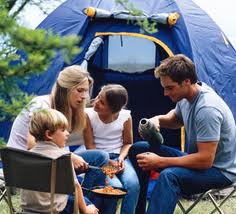Positive Parenting
How Important Is It?

What is positive parenting? Parenting is a Challenging and Rewarding Experience. And it needs to be a joy. When it is a joy, it is positive parenting.
Life is meant to be joyful. I think we all know that at some level. But that’s not the way many people experience their life. I do know it’s a choice, no matter what things look like. That’s why positive parenting is so important. We love our children, but we are so busy being their parents that we forget to show them how wonderful life can be and how important they are in your life and in the world. That may sound a little grandiose but the truth is, if we are not positive parents, our children will suffer from low self-esteem and that will affect them for the rest of their lives.
Parenting styles are very important in family life. Our parenting styles are usually learned from our own parents unless we make a concerted effort to change them. In order to do that, we must make a conscious effort to examine what works and what doesn't. We must ask ourselves the question " do I want my children brought up the way I was and how can I make a change?"
There are three styles of parenting: autonomous, democratic and permissive.
Autonomous is high order and low freedom.
Democratic is order and freedom.
Permissive is high freedom/little order.
I firmly believe in the democratic style. To me, that is positive parenting. It is the one style that takes into account the crucial importance of a child’s self-esteem. It is the one style that teaches a child that the world can be a safe place and the people in his life accept him and love him for who he is. This is how he can accept and love himself unconditionally.
A child needs to grow up being secure and strong and valuable. He needs to feel that he belongs in the world, that he has lots to contribute and that he is appreciated. This is the core of his self-esteem. To me it is logical that teaching democracy to a child is the best favor we can do for him or her.
I have two sons and at an early age their father died and I became their only caregiver. I had a lot of problems at first and so began to study books about child rearing so that I could find the best way to take care of them. I found a system called ‘Children the Challenge’ that made a lot of sense to me and it became my own parenting style. It is based on logical and natural consequences and it changed my life in more ways than I could imagine. It is not just a parenting style, it is a way to live.

I have the great pleasure today of experiencing two of my grandchildren growing up in the formative years of their life. The first one (William)is being brought up from a background of control and dominance. The other (Robert)is from a democratic style with a little permissiveness. William, is an adopted grandchild and so it is easy for me to recognize the behavior patterns (because they are not natural to me). Robert, is my son’s child, and his parenting style is natural to me.
Just having the styles of child rearing are not enough, though. Consistency is the second most important component of interacting with your child. Consistency between what you say and what you do is crucial. Children become confused and fractured if they cannot count on you doing what you say you will.
William is being treated in a controlling way. It is not consistent, though. He doesn’t know what to expect at times. Mood plays an important role in how those parents will behave at any given time. There are days when he is told to go to the corner or go to his room so many times that everyone is exhausted. Then there are days when the entire day is spent cuddling him in front of the TV. I think that it is a form of apology as well as an easy way to avoid conflict. The days cuddling in front of the TV are definitely preferable, but the inconsistency takes away from the value of the time.

Robert and his parents are having more fun in their life because he is allowed to think about the consequences of his actions as it is brought to his attention and he gets to figure out what they are. He only knows what fairness is and so doesn’t have to be on his guard. When a child has broken a house rule and ends up feeling good about the whole learning experience, you know that you have done something right.

I have no personal experience with permissive parenting, but I do know that a child from that background has no boundaries and ends up being the least popular in a group situation. A child brought up in a permissive family is short on social skills and has difficulty working with others in a cooperative way. Values are hard to instill in a permissive family as no one seems to care what you do. It’s a great subject for a movie script ( Pippy Long Stockings) but doesn’t work well in the real world.
If your household is tense and on edge, ask yourself a few questions about how your own family behavior affected you. Is this what you want for your own family. What can you do differently to help your children grow up with a healthy self-esteem?
How to Have a Great Relationship With Your Kids?
One of the most important training grounds for children is in the home. As parents, you need to be completely aware of how you impact their self-esteem and hence the behavior of your children. Babies are born with a clean slate. They know nothing about the world around them. As newborns, they are the center of the Universe. Everything they learn in their first 6 years of life is from you, their primary caregiver. They do what you do. They are what you are. They are sponges.
So, do you love and respect yourself? This is an important question. If so, you will be able to show your children what that looks like and your dealings with them will reflect that. Children deserve the same respect that you would give your friends. They are no different than anyone else in your life. They are just smaller.
So, to have a great relationship with your children, you need to create an atmosphere of trust and fairness. Your children don’t need to feel insecure about your behavior to them. They need to feel safe in the knowledge that you are consistent and fair in your dealings with them, They need to know what to expect from you.
In families, there are always challenges. There is sibling rivalry. There are stages of growth and changes that require special attention. Respectful communication is a necessity! What I believe is immensely important is reasonableness. If we take a deep breath at a critical time, we allow ourselves to size up the situation and figure out exactly what is going on, and the most intelligent and reasonable way of dealing with it. I call it natural and logical consequences. Things have to make sense and they have to be fair. When children can’t see the fairness, they feel violated. Your relationship with your children is the most important thing in their lives. Think of that!
Natural and logical consequences are, being able to connect what is going on with what is the outcome of it. If a child is allowed to feel the consequences of his actions, he learns. For instance, if Johnny forgets to take his lunch to school, he gets hungry. Or if Susie has not cleaned her room, Mom is not comfortable going in there to read her a bedtime story. This allows children to accept responsibility for themselves and helps to instill confidence and self-esteem. When we dialog with our kids about what works and what doesn’t, they get to make decisions and learn from them. Solving problems becomes fun because they are involved with finding the right answers. No one is made to feel inadequate and great relationships with your children are formed and will not only last forever, but will be passed on to the next generation.

Children are like sponges. What they absorb comes from their major caregivers. As parents, we need to think twice about what we say, what we do and mostly, how we are."
Return from Positive Parenting to Family Behavior Patterns
Return from Positive Parenting to Families Self-Esteem
Return to Home Page





